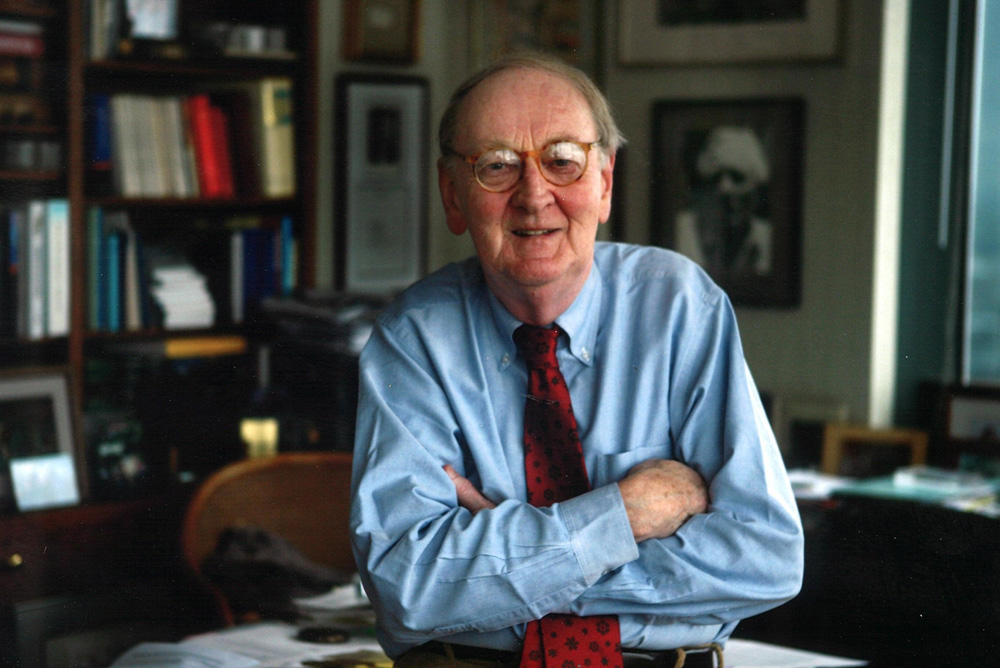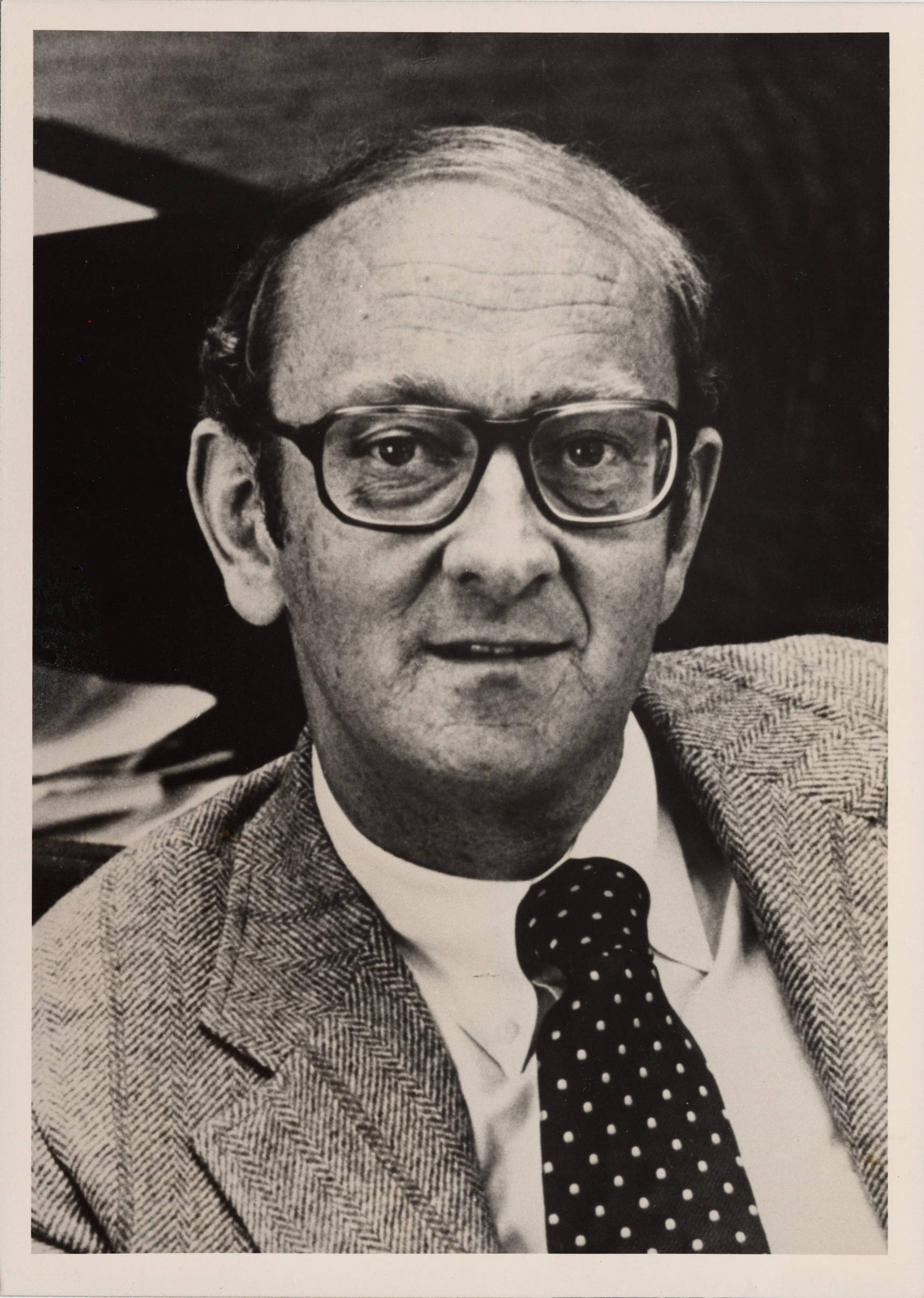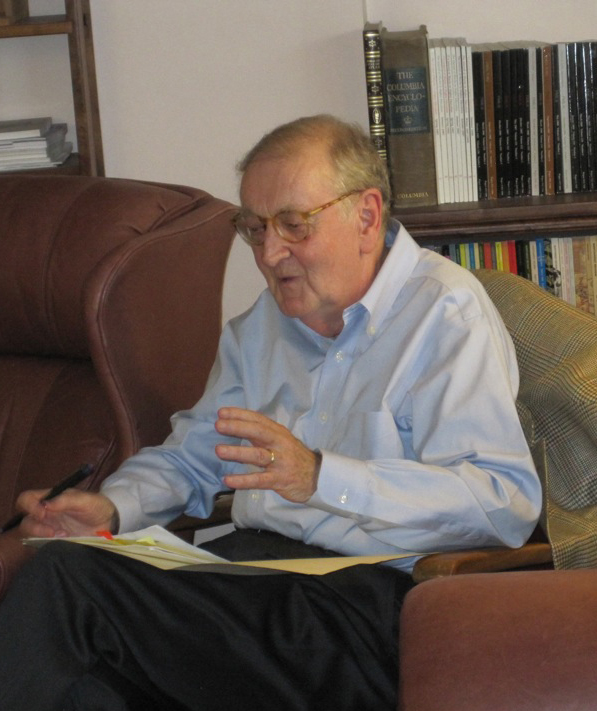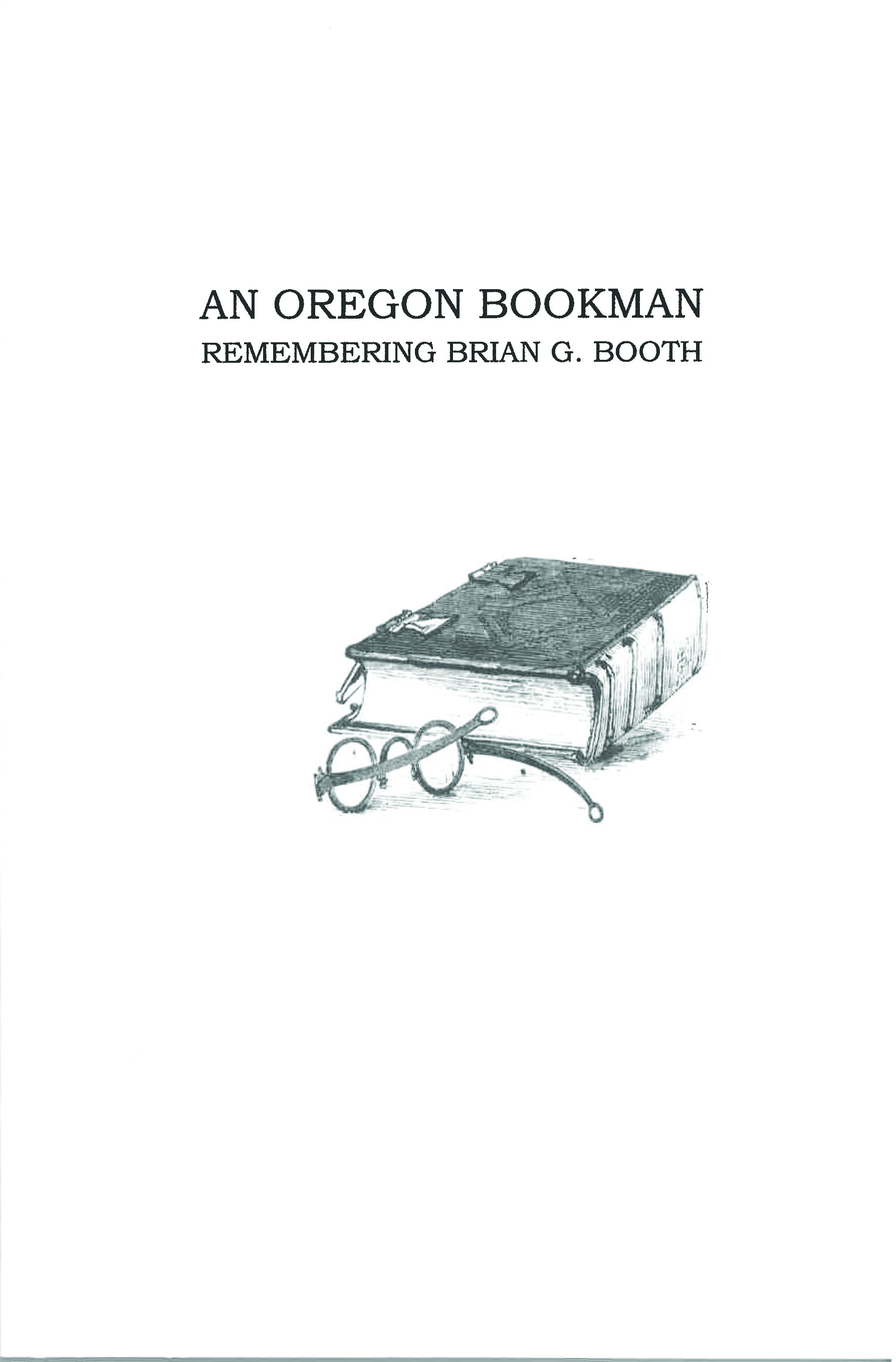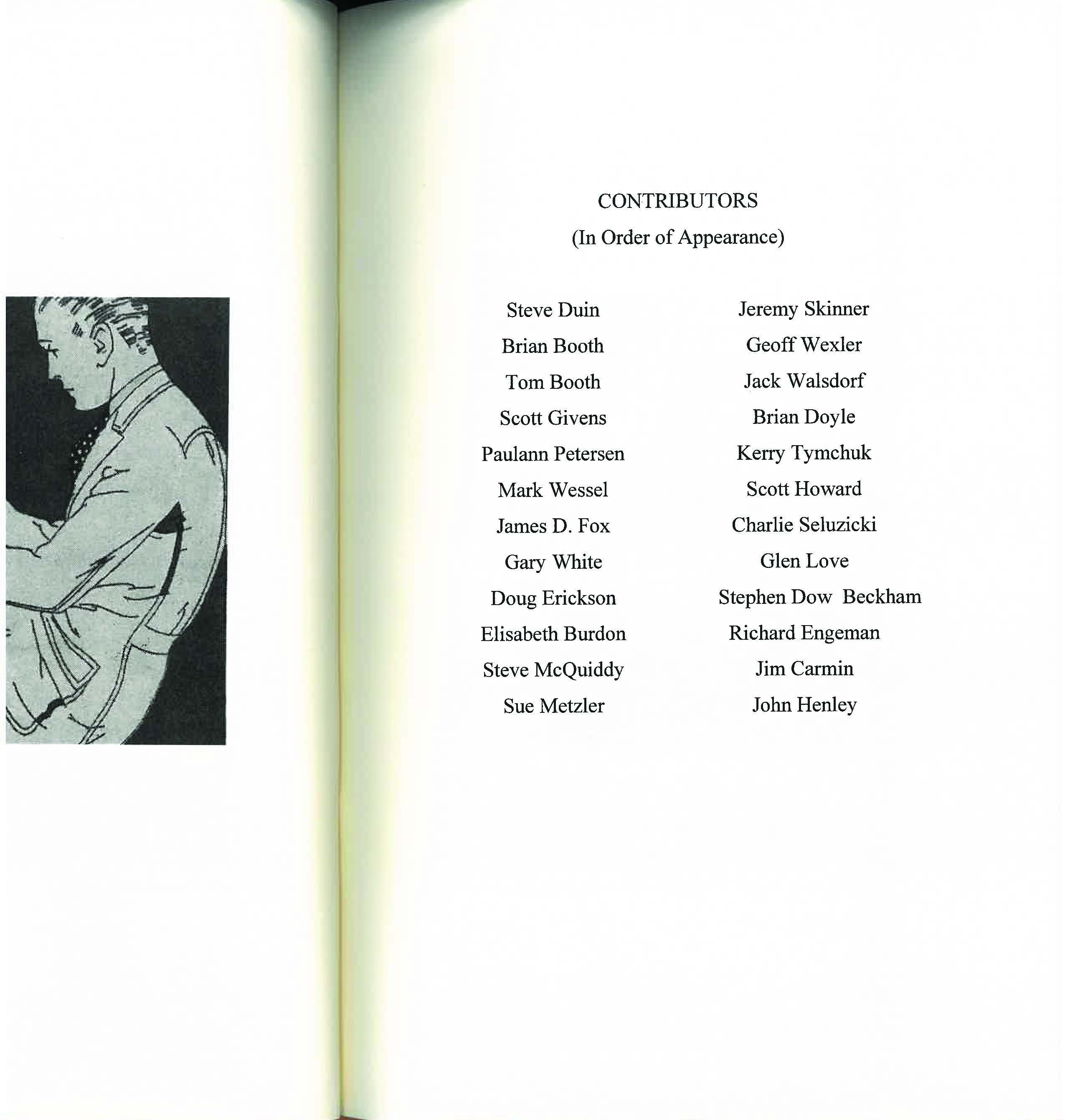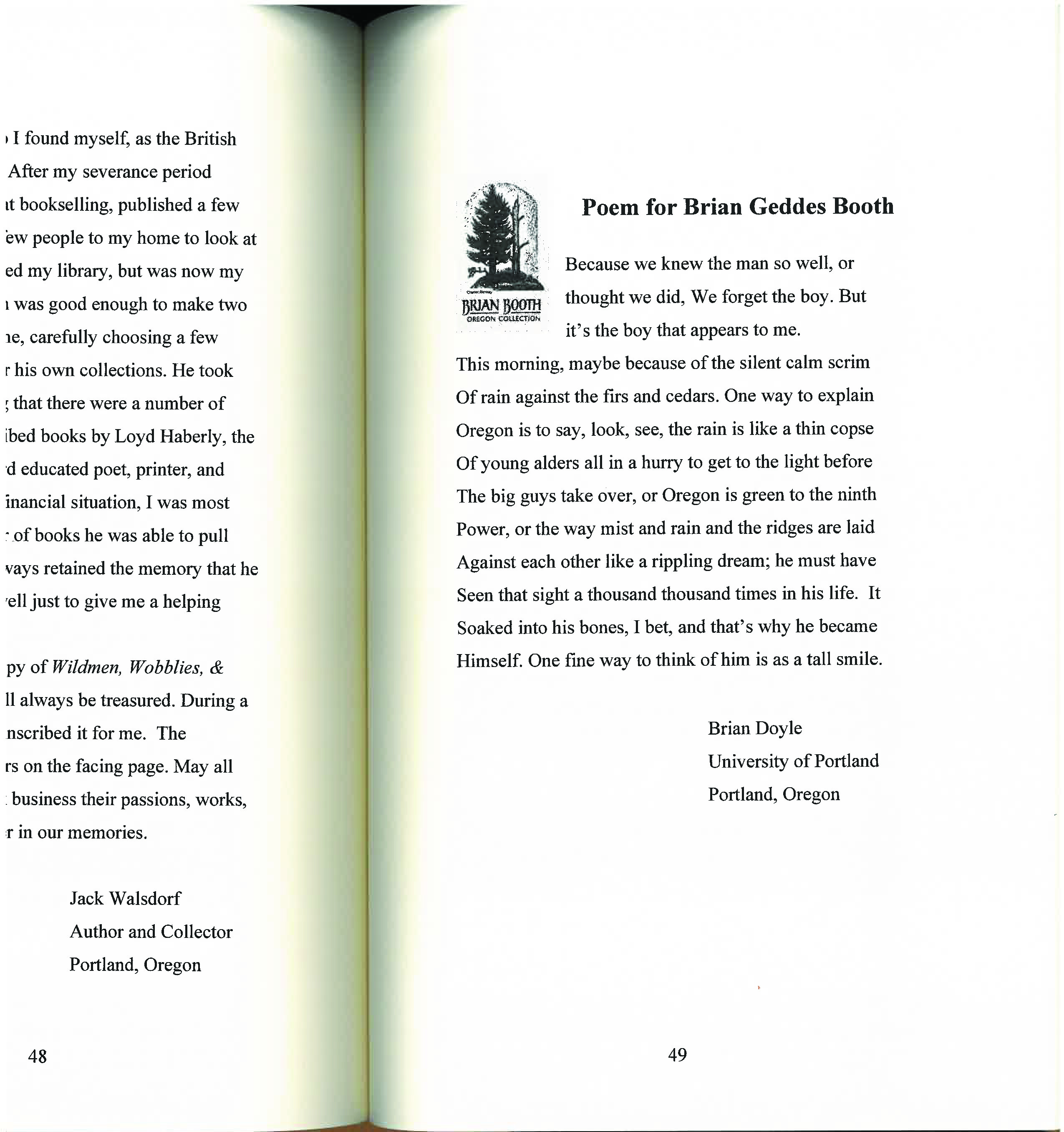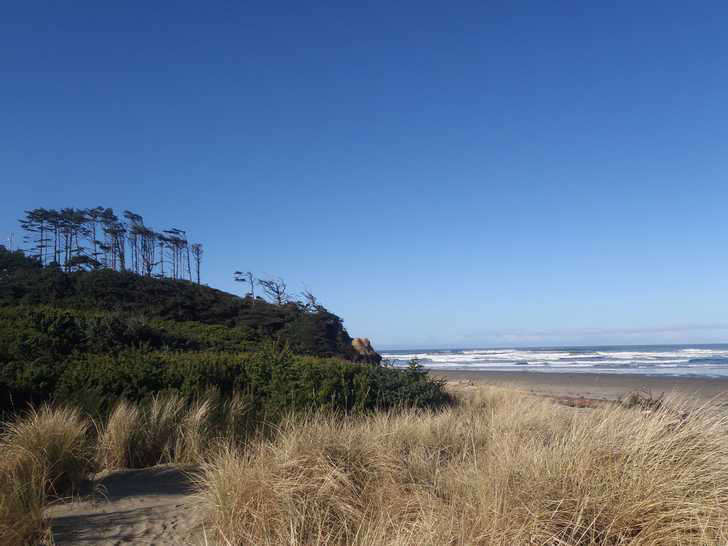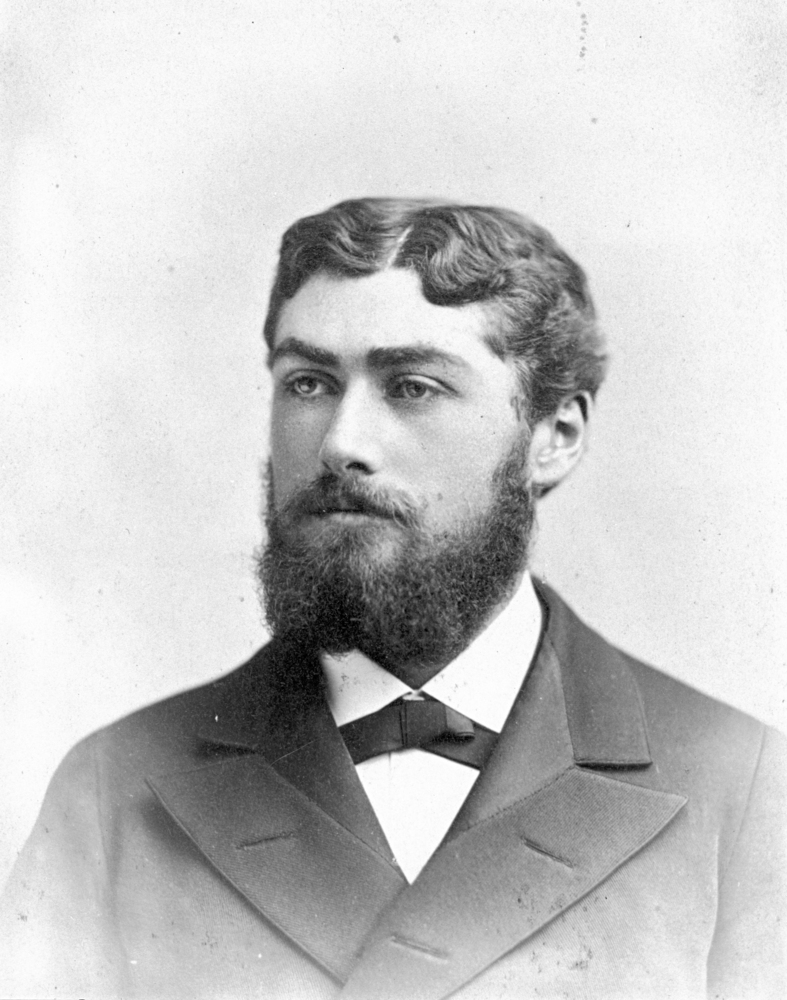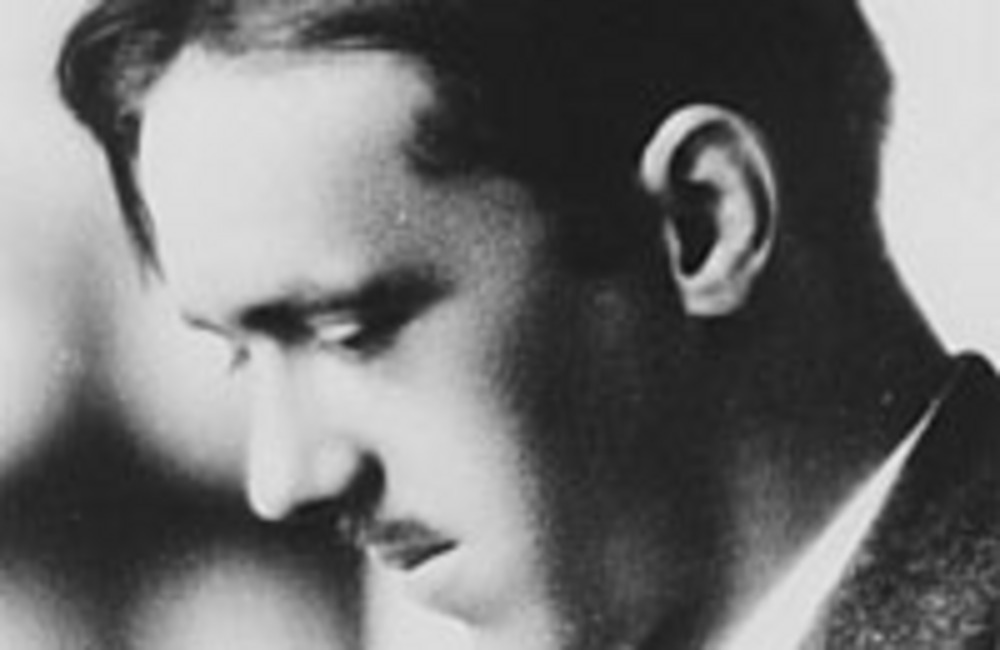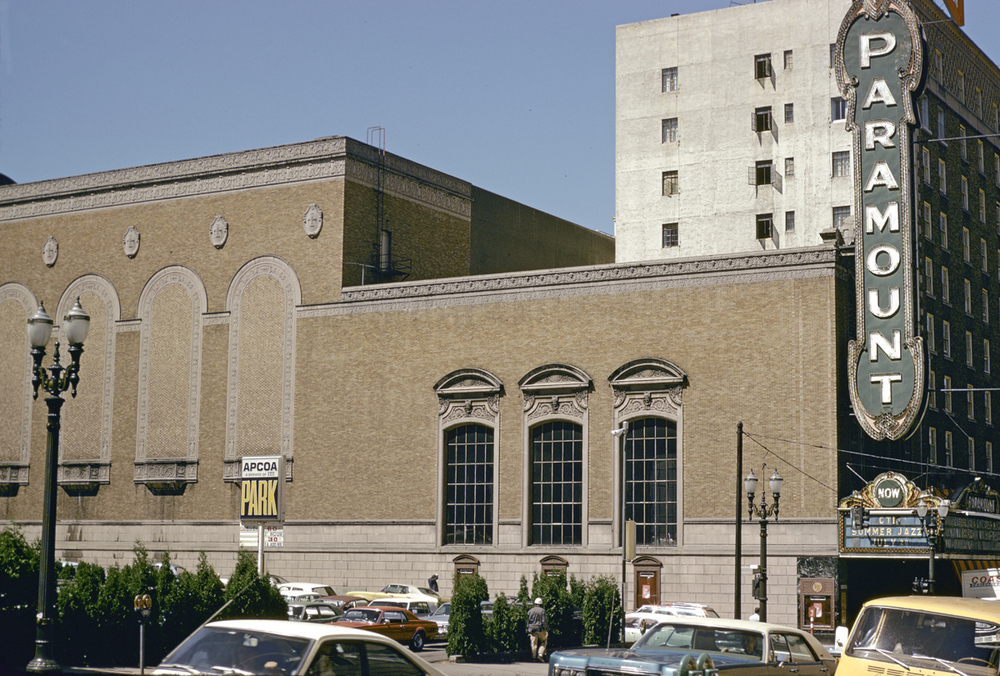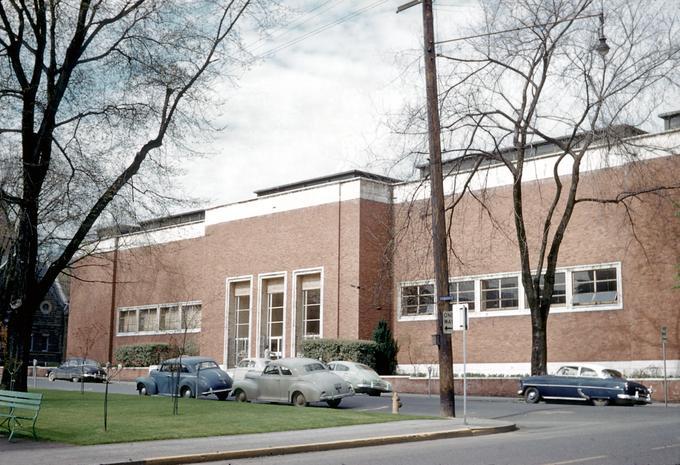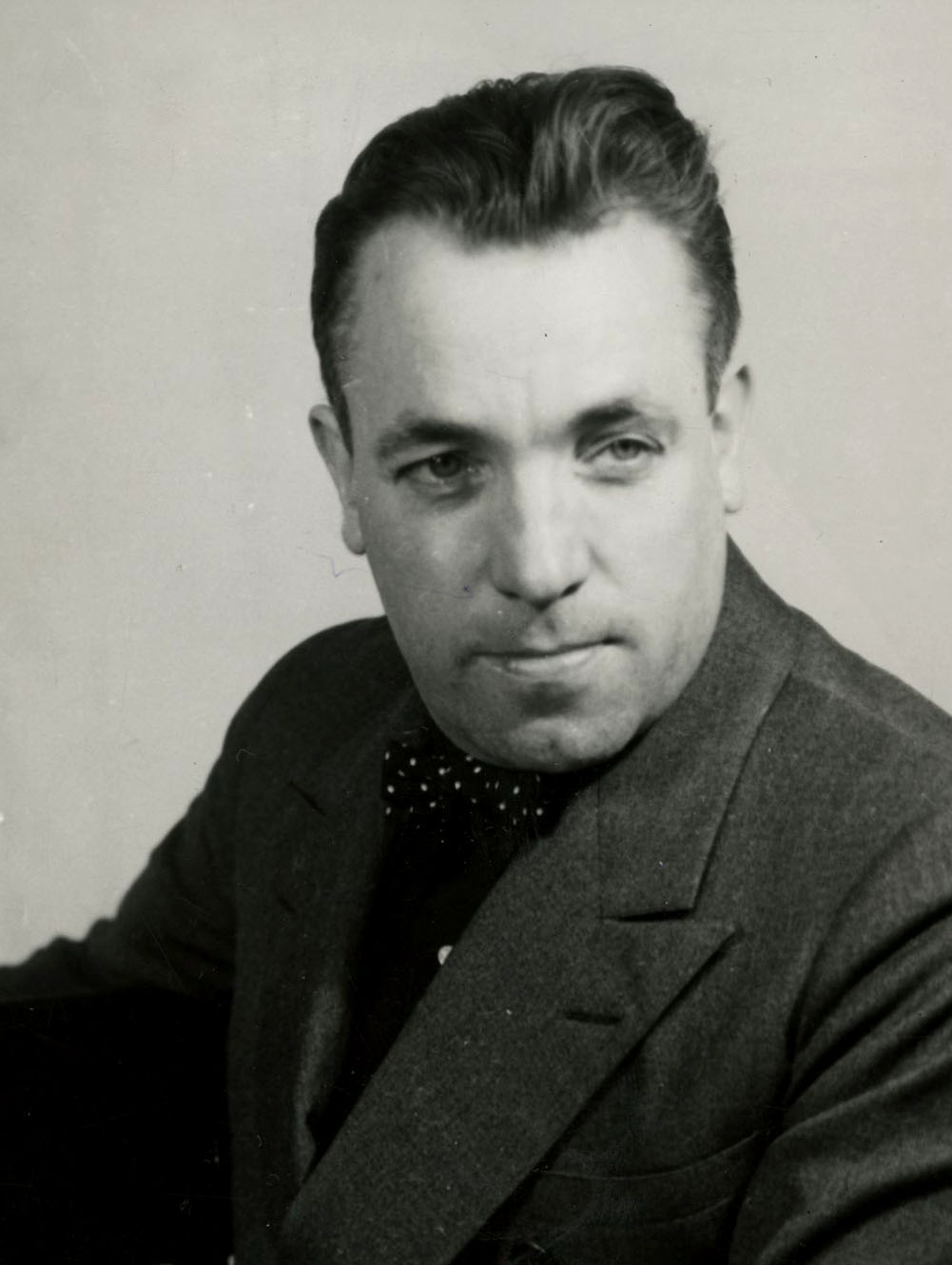Brian Booth was known as a Renaissance Man whose interests ranged from corporate law and public spaces, to Oregon literature and art. A lawyer and philanthropist, he promoted Oregon state parks and beaches, founded literary and cultural organizations, and served as the chair of five state organizations. He was an expert in Oregon art, edited a collection of the writing of popular historian Stewart Holbrook, Wildmen, Wobblies, and Whistle Punk (1992), and was co-editor of Davis Country: H. L. Davis’s Northwest (2009).
Brian Geddes Booth was born in Roseburg on May 30, 1936. The home library of his grandfather, civic-minded James Henry Booth, had shelves filled to the ceiling with books on subjects that ranged from natural history to art and Oregon history—books that captured Brian Booth’s imagination and intellect. In high school, he played on the basketball, tennis, and track teams and served as student body president. After graduation, he enrolled at the University of Oregon, where he wrote for the Daily Emerald, the student newspaper, writing a satirical column titled “The Skeptic Tank.”
During his sophomore year at UO, Booth met freshman Phil Knight. They formed a friendship that became a professional relationship years later when Booth represented the Nike founder as its attorney. Booth also met fellow student Ken Kesey, who he would encounter again when both attended Stanford University. After graduating Phi Beta Kappa in 1958, Booth served a stint in the U.S. Army and attended Stanford Law School, where he was an editor of the Stanford Law Review. He married Anne Mautz of Portland in 1959 and received his law degree in 1962, when the family moved to Portland.
Booth partnered with Davies Biggs as a corporate attorney specializing in business securities and corporate law. He served as a longtime legal advisor to Phil Knight and represented Nike, Inc. in its public offering, which sold shares on stock exchanges for the first time in 1980. The next year, he was named a partner of Tonkon, Torp, Galen, Marmaduke, & Booth.
Brian Booth’s civic activism is reflected in his commitments to numerous public enterprises and positions: president of the board of the Portland Art Museum, chair of the Oregon Parks and Recreation Commission (serving under three governors), cofounder of the State Parks Trust (now Oregon Parks Forever), founder of the Oregon Institute of Literary Arts (now Literary Arts, Inc.), and cofounder of the Oregon Cultural Heritage Commission. He served on the boards of the University of Oregon Art Museum and the Oregon Health and Sciences University Foundation.
Booth’s great passion was books, especially those about Oregon. “His love of books was part and parcel of the social whirl that was his life,” his son Tom Booth remembered. Books, magazines, and periodicals were evident at home and in his office at Tonkon Torp, and he sought conversations with book people, including authors, publishers, bookstores, and professional booksellers. He founded the Oregon Institute of Literary Arts in 1984 and with others launched the Oregon Book Awards and Oregon Literary Fellowships. Later, he was a supporter of the Wordstock/Portland Book Festival.
A cofounder of the Oregon Cultural Heritage Commission, Booth celebrated regional writers, including Charles Erskine Scott Wood, H. L. Davis, and Stewart Holbrook. The Heritage Commission expanded its interests beyond writers to embrace the full range of the cultural arts, including film, photography, theater, and music, and Booth was particularly interested in the careers of talented, lesser known creative people. He partnered with his second wife, Gwyneth Booth, in promoting the literary arts, and their efforts earned them the Tom McCall Leadership Award in 1997. They were named First Citizens of Portland in 1998. In 2004, Friends of the Performing Arts Center placed stars on the sidewalk of the Performing Arts Center, reading "Champion for Oregon Parks, Art and Literature."
In 1990, Governor Neil Goldschmidt appointed Booth the first chair of the Oregon State Parks and Recreation Commission. In that position, he championed the public ownership of Oregon’s ocean beaches and supported the establishment of new parks. In 2010, he sponsored a successful constitutional amendment (Measure 76) requiring that Oregon Lottery funds be devoted to Oregon parks, coastal beaches, and watershed protection.
Brian Booth died on March 7, 2012. In his memory, the Oregon Parks and Recreation Department renamed Beaver Creek Natural Area and Ona Beach State Park the Brian Booth State Park.
-
![]()
Brian Booth.
Courtesy Tonkon Torp -
![]()
Brian Booth.
Courtesy OHSU Digital Collections, CC -
![]()
Brian Booth.
Courtesy Oregon State University -
![Published by the Himes & Duniway Society.]()
"An Oregon Bookman: Remembering Brian G. Booth," 2012 (cover).
Published by the Himes & Duniway Society. Oregon Historical Society Research Library, PAM 92 B725o
-
![Published by the Himes & Duniway Society]()
"An Oregon Bookman: Remembering Brian G. Booth," 2012 (list of contributors).
Published by the Himes & Duniway Society Oregon Historical Society Research Library, PAM 92 B725o
-
![Published by the Himes & Duniway Society]()
"An Oregon Bookman: Remembering Brian G. Booth," 2012 (tribute by Brian Doyle).
Published by the Himes & Duniway Society Oregon Historical Society Research Library, PAM 92 B725o
-
![]()
Brian Booth State Park.
Courtesy Oregon Parks and Recreation
Related Entries
-
![C.E.S. Wood (1852-1944)]()
C.E.S. Wood (1852-1944)
C.E.S. Wood may have been the most influential cultural figure in Portl…
-
![Harold Lenoir Davis (1894-1960)]()
Harold Lenoir Davis (1894-1960)
Born and raised in rural and small-town Oregon, Harold Lenoir Davis was…
-
![Jordan Schnitzer Museum of Art]()
Jordan Schnitzer Museum of Art
The Jordan Schnitzer Museum of Art (JSMA), situated on the Memorial Qua…
-
![Literary Arts]()
Literary Arts
Literary Arts is a nonprofit arts organization with a mission to enrich…
-
![Portland Art Museum]()
Portland Art Museum
The Portland Art Museum, which opened in 1895 in the city library with …
-
![Stewart Holbrook (1893–1964)]()
Stewart Holbrook (1893–1964)
From Oregonian Stewart Holbrook's first book through his three dozen la…
Map This on the Oregon History WayFinder
The Oregon History Wayfinder is an interactive map that identifies significant places, people, and events in Oregon history.
Further Reading
Cliff Collins, “Profiles in Law: Oregon’s Man of the Book.” Oregon State Bar Bulletin (April 2002).
An Oregon Bookman, Remembering Brian G. Booth, A Compilation of Remembrances. Portland, Ore.: Himes & Duniway Society, 2012.

